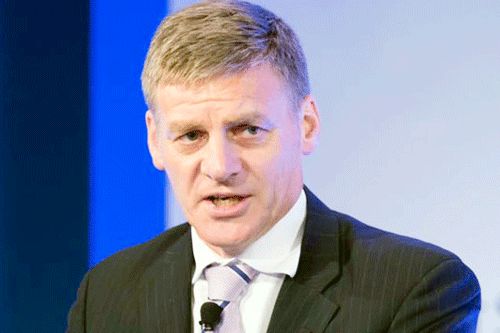Published on the 22/05/2015 | Written by Donovan Jackson

With the biggest fireworks in the Budget coming for families in need, there were no surprises for the information and communications technology industries…
Most notable for ICT was the focus on fibre and the Rural Broadband Initiative (RBI), which continues with some $210 million in capital funding allocated to the next stage of the Ultra-Fast Broadband (UFB) network and $150 million assigned to improvements in rural broadband.
In a prepared statement, Minister for Communications Amy Adams said the UFB programme is 46 percent completed and is ahead of schedule and within budget; the first stage of RBI is above 73 percent complete.
TUANZ CEO Craig Young said the funding on UFB and RBI was already flagged at the time of the general election. “There was nothing much to come out of the Budget that we didn’t already know. In terms of the rollout and the build, I’d say things are going OK; we are starting to get some towns lit up, but what we are watching closely is uptake on network.”
Connectivity is arguably the ‘missing link’ for the technology sector and widely considered a catalyst for its growth. While the pace of the rollout of the UFB initiative is routinely criticised, with a recent salvo fired from gaming developer Dean Hall who called Dunedin’s Gigatown a “total joke”, the technology sector is nonetheless performing admirably, according to the MBIE’s 2015 ICT Sector Report, released last week.
The Report shows that the technology software and services sector has grown at a rate of nine percent per annum since 2008 and now contributes 1.7 percent to the GDP, while exports have grown at 14 percent per annum over the last six years to exceed $930 million in 2014. IT stocks comprise approximately 10 percent of the value of all listings on the NZX main board; there are over 10,000 domestic IT businesses in this country.
Young said those numbers are impressive; “What we need is to continue to grow those exports and diversify. Tech is an ideal export as it is weightless, especially where software is concerned.”
While the ‘Netflix effect’ is seeing more residential orders for fibre coming in, Young said he has concerns that business is not taking full advantage. “It is a little frustrating that business is not necessarily adopting fibre as fast as we would like, which is why we have launched our digital journey tool. SME business is where the real opportunity [to benefit from UFB] is, but they are in many cases too busy operationally to look at it.”
PwC CEO Bruce Hassall noted a solid economy, forecast to grow at around 2.8 percent per annum over the next four years. “The deficit is larger than had been signalled, and the surplus next year is back to rounding error levels. So with little financial room to manoeuvre, the sums involved are not large. But the underlying approach of focusing on long-term performance and tackling the more challenging parts of society continues,” he said.
Overall, Young said from a TUANZ perspective, the Budget is satisfactory. “We are pleased to see continuation of Fibre to the Home, which we pushed for early on and we’re happy to see availability extended to 80 percent [of the population]. The $150 million allocated to rural is another good contribution, but in our view there is more to be done in that sector.”



























